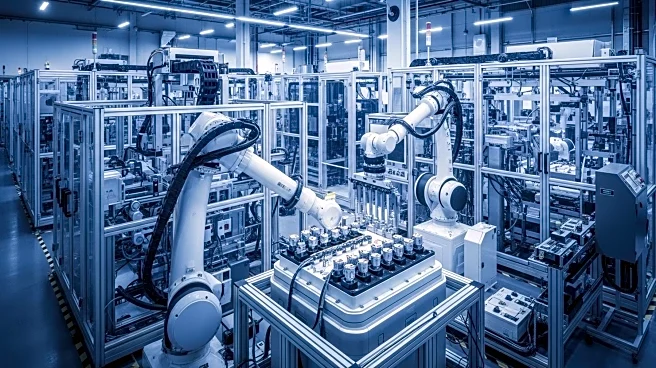What's Happening?
Hyundai's battery plant in Georgia, co-owned with LG Energy Solution, is facing a startup delay of two to three months following a significant immigration raid. The raid, conducted by the U.S. Department of Homeland Security, resulted in the arrest of approximately 475 workers, primarily South Korean nationals employed by LG suppliers. Hyundai CEO Jose Munoz expressed surprise at the raid and clarified that the workers involved were not directly employed by Hyundai. The plant is part of a $7.6 billion factory complex intended to produce battery-powered models and was expected to commence operations later this year. Hyundai plans to source batteries from other plants, including a Georgia facility co-owned with SK On, while awaiting the startup of the LG plant.
Why It's Important?
The delay in the startup of Hyundai's battery plant could have significant implications for the automotive industry, particularly in the U.S. The plant is part of a major investment aimed at boosting the production of electric vehicles, which are crucial for meeting environmental goals and consumer demand. The raid and subsequent delay may affect Hyundai's production timelines and supply chain, potentially impacting the availability of electric vehicles in the market. Additionally, the incident highlights the complexities of employing specialized foreign workers in the U.S., which could lead to increased scrutiny and regulatory challenges for international companies operating in the country.
What's Next?
Hyundai will continue to source batteries from other facilities to mitigate the impact of the delay. The company may need to reassess its workforce strategy and compliance with U.S. immigration laws to prevent future disruptions. The incident could prompt discussions among industry leaders and policymakers regarding the employment of foreign workers and the enforcement of immigration laws. Stakeholders, including political leaders and business groups, may seek to address these issues to ensure the smooth operation of international ventures in the U.S.











